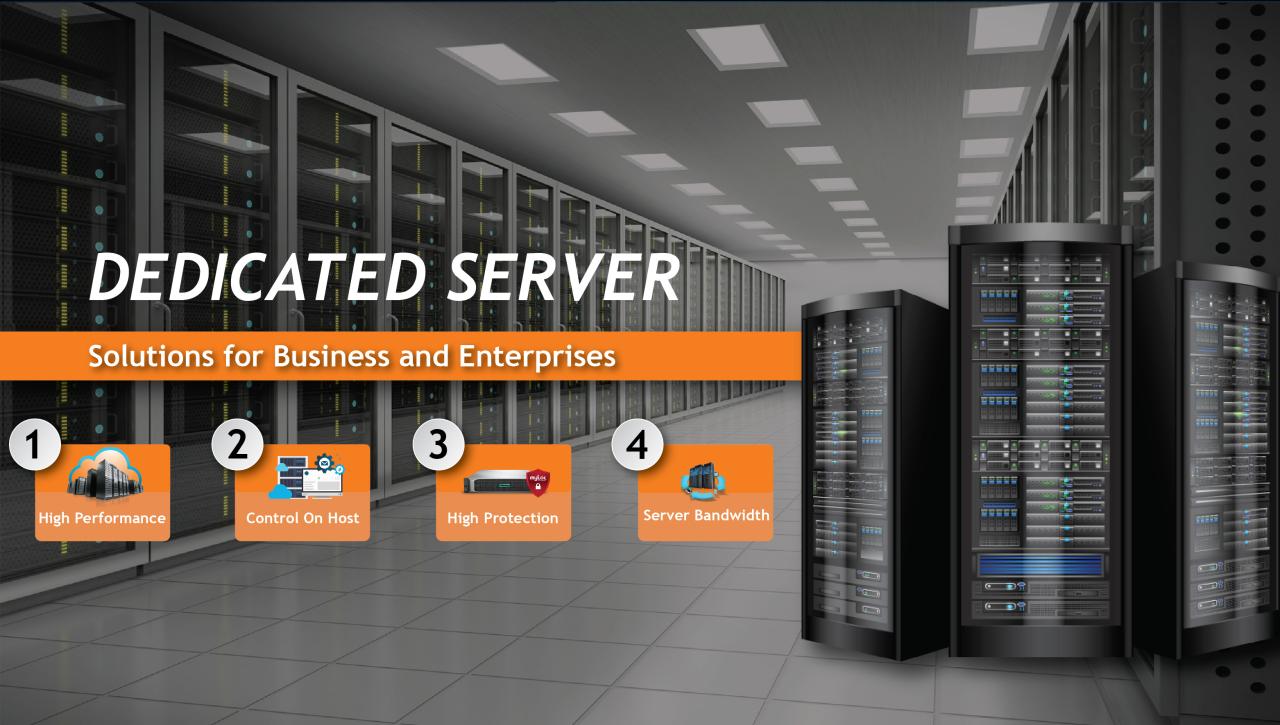Top secure server solutions for enterprises: Ensuring Data Protection and Security

Top secure server solutions for enterprises provide a crucial foundation for safeguarding sensitive data and maintaining the integrity of business operations. In today's digital landscape, where cyber threats loom large, having robust security measures in place is paramount. Let's delve into the world of secure server solutions and explore how they can benefit enterprises in protecting their valuable information.
Importance of Secure Server Solutions

Secure server solutions play a crucial role in safeguarding sensitive data and ensuring the smooth operation of enterprises in the digital age.
Potential Risks of Not Having a Secure Server Solution
- Unauthorized Access: Without proper security measures, hackers can easily gain access to confidential information stored on servers.
- Data Breaches: Lack of server security can lead to data breaches, resulting in financial losses and damage to the organization's reputation.
- Malware Attacks: Servers without adequate protection are vulnerable to malware attacks, which can disrupt operations and compromise data integrity.
Examples of Security Breaches
One notable example of a security breach due to inadequate server security is the Equifax data breach in 2017, where hackers exploited vulnerabilities in the company's servers to access personal information of millions of consumers. This incident resulted in significant financial and reputational damage to the company.
Types of Secure Server Solutions

When it comes to secure server solutions for enterprises, there are different types available to choose from. Each type has its own set of benefits and drawbacks, depending on the specific needs and requirements of the organization.
On-Premises Server Solutions vs. Cloud-Based Server Solutions
On-premises server solutions involve hosting servers within the physical premises of the organization, while cloud-based server solutions utilize remote servers hosted by a third-party provider. Let's compare and contrast these two types:
- On-Premises Server Solutions:
- Require a significant upfront investment in hardware and infrastructure.
- Give organizations complete control over their servers and data.
- Offer higher levels of customization and security based on specific needs.
- Can be more cost-effective in the long run for large enterprises.
- Cloud-Based Server Solutions:
- Eliminate the need for organizations to manage physical servers and infrastructure.
- Provide scalability and flexibility to easily adjust resources based on demand.
- Offer cost-effective pay-as-you-go pricing models, reducing upfront costs.
- Can sometimes raise concerns about data security and privacy due to reliance on third-party providers.
It's essential for enterprises to carefully evaluate their needs and priorities to determine which type of secure server solution aligns best with their business objectives.
Features to Look for in Secure Server Solutions

When choosing a secure server solution for enterprise use, there are several key features to consider that can enhance the overall security of your data and network. These features play a crucial role in safeguarding sensitive information and protecting against cyber threats.
Importance of Encryption
Encryption is a fundamental feature that should be present in any secure server solution. It ensures that data transmitted between servers, devices, and networks is scrambled and unreadable to unauthorized users. By encrypting data, even if it is intercepted, it remains secure and protected from being accessed or tampered with.
Role of Access Control Mechanisms
Access control mechanisms are essential in maintaining server security by regulating who can access specific resources, applications, or data within the server environment. By implementing access control policies, organizations can enforce restrictions based on user roles, permissions, and authentication methods.
This helps prevent unauthorized access and reduces the risk of data breaches or insider threats.
Implementation of Secure Server Solutions
Implementing secure server solutions within an enterprise involves several crucial steps to ensure the protection of data and systems. It is essential to follow best practices for configuration and maintenance, as well as regularly monitor and evaluate the effectiveness of these solutions.
Steps for Implementing Secure Server Solutions
- Conduct a thorough security assessment to identify vulnerabilities and risks.
- Choose the right secure server solution based on the specific needs and requirements of the enterprise.
- Install and configure the secure server solution following the vendor's guidelines and industry best practices.
- Implement access controls and encryption protocols to safeguard sensitive data.
- Regularly update and patch the secure server solution to address any security gaps or vulnerabilities.
Best Practices for Configuring and Maintaining Secure Server Solutions
- Enforce strong password policies and multi-factor authentication to prevent unauthorized access.
- Implement firewalls and intrusion detection/prevention systems to monitor and block malicious activities.
- Regularly backup data and test disaster recovery plans to ensure business continuity in case of a security breach.
- Conduct regular security audits and penetration testing to identify and address any weaknesses in the system.
Tips for Monitoring and Evaluating the Effectiveness of Secure Server Solutions
- Set up security monitoring tools to track and analyze network traffic for any suspicious activities.
- Establish key performance indicators (KPIs) to measure the effectiveness of the secure server solution in protecting data and systems.
- Regularly review security logs and reports to identify any anomalies or security incidents that require immediate attention.
Last Point
In conclusion, implementing top secure server solutions for enterprises is not just a choice but a necessity in the face of escalating cyber threats. By prioritizing data security and adopting the right server solutions, businesses can fortify their defenses and ensure uninterrupted operations.
Stay informed, stay secure.
Questions and Answers
What are the potential risks of not having a secure server solution in place?
Without a secure server solution, enterprises are vulnerable to data breaches, unauthorized access, and potential financial losses due to cyber attacks.
What are the essential features to look for in secure server solutions?
Key features include robust encryption protocols, access control mechanisms, regular security updates, and comprehensive monitoring capabilities.
How can enterprises evaluate the effectiveness of secure server solutions?
Enterprises can assess effectiveness through regular security audits, penetration testing, monitoring system logs, and analyzing incident response times.

